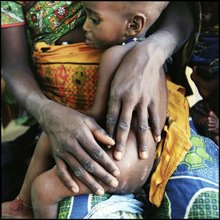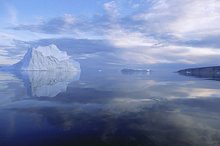PREAMBLE On October 12th, 2010, Canada lost in its bid for a seat on the United Nations Security Council. Despite Canada’s tradition of global leadership, and having gained this seat on every prior bid for it, impoverished Portugal (pop 11.6 million) beat Canada by a virtual landslide. It is no exaggeration to say that, approaching the vote, Canada’s Conservative government revealed a sense of entitlement to the seat, being 7th largest donor of the UN, and hosting this year’s G8 and G20 meetings.
Besides Prime Minister Stephen Harper making two appearances before the General Assembly during the run-up (having otherwise mostly ignored the UN), as a bizarre gesture, Maple Syrup gifts were given to representatives of UN members before the vote. The juxtaposition of these events suggest that a combination of clumsy leadership and diplomatic ineptitude (maple syrup diplomacy?) may lie at the root of this foreign policy failure.
In response to the stinging electoral defeat on October 12, 2010, the first such loss sustained by Canada since the UN’s inception in 1946, Canada’s Foreign Affairs Minister Lawrence Cannon declared, "I do not in any way see this as a repudiation of Canada's foreign policy… The principles underlying our foreign policy, such as freedom, democracy, respect for human rights and the rule of law, were the basis of all our decisions." [CBC News October 13, 2010 8:00 PM ET.]
Our take on Cannon’s so very defensive declaration is that these stated principles do create positive images, but when you look closely at how they are interpreted under the Conservative government, the reality reveals a narrow vision that is at once arrogant, ignorant and ignoble. The focus of this issue of PacificSci Global Perspectives therefore is to examine this assertion, uttered by Cannon on behalf of a Canadian government currently led by Prime Minister Stephen Harper.
Historical Note: Canada has been a driving force behind the formation of the Internatinal Criminal Court, the Treaty Banning Landmines, the interdiction of blood diamonds, and an array of other worthy and respected global initiative. This tradition of Canadian leadership at the global level was built on a sound foundation laid by former Prime Minister (Liberal) and 1957 Nobel Peace Laureate Lester B Pearson. As President of the UN General Assembly in 1952, Pearson led UN efforts to mediate a settlement to the Korean War. His work gave rise to Canada’s reputation for fairness and balance, and the effective use of diplomacy rather than militarism. His leadership also gave rise to the (now diminished) Canadian military tradition of peacekeeping. It is out of respect for this legacy that Global Perspectives includes a quotation from Pearson in our masthead.
FOREIGN POLICY MISSTEPS & ABERRATIONS
Our view of this situation is that Canada’s foreign policy under the current Conservative government of Stephen Harper is largely responsible for its inability to win this UN Security Council seat in a contest with Portugal. Consider the following selected actions (often inactions) of the Harper government, which we have organized according to the following headings - global, international and national with global implications:
Global
o Refusal to Sign the Treaty for the Rights of Indigenous Peoples.
o Refusal to Sign the Treaty recognizing Water as a Human Right.
o Undermining the Copenhagen Climate Change Conference.
o Withdrew financial support for UNRWA (UN Relief & Works Agency).
o Shifting Aid Priorities from Africa to Latin America, despite human needs.
o Promoting a maternal health initiative deficient in family planning and excluding access to safe abortion within this (a discredited Bush-era policy).
o Down-grading Canada’s contribution to UN peacekeeping — Canada (almost unbelievably) now ranks 57th, behind Yemen and Uganda.
International
o Uncritical support for Israel e.g., in 2006, the only vote at the UN supporting Israel’s policy on settlements. Note: Most nations support Israel’s right to exist but not illegal settlements.
o A clear lack of anything close to comparable compassion for displaced Palestinians (in occupied territories and refugees).
o Refusing entrance to 4 term British MP George Galloway, alleging that he supported terrorism. Note: this view was recently over-ruled by the Supreme Court of Canada, and lays the government open to criminal proceedings.
o Belated attention to Canada’s relationship with China, first opened up by former Liberal Prime Minister Pierre Trudeau, and now of major economic importance.
National Policy Failures with International & Global Ramifications
o Refusal to release files that may indicate knowledge of torture in Afghanistan, and when forced to do so these were so heavily redacted as to render them virtually useless. They have thereby challenged the freedom of Canadians to know what their government is doing - the freedom of information process.
o Refusal to act even on its own Charter of Rights and Freedoms regarding certain Canadian citizens abroad e.g., Abousfian Abdelrazik stranded in Sudan for 6 years after Canada refused to issue a new passport to him because he was on the UN Security Council terrorist blacklist. Now in Canada thanks to a Supreme Court of Canada ruling in his favour, Abdelrazik accuses the government of blocking his repatriation and helping to arrange his imprisonment.
Note: There is a double standard here (perhaps even overt racism) where others, like Brenda Martin (white, Canadian born) charged with money laundering in Mexico, obtain Ministerial intercession and a prompt flight home.
o Refusal to act on international law regarding Canadian prisoner Omar Khadr (a child soldier no less) in Guantanamo, the only western government not to repatriate its nationals from US military tribunals which lack legitimacy even in the eyes of the US Supreme Court. The Harper regime has in effect redefined human rights by supporting the suspension of habeas corpus and allowing indefinite imprisonment with no charges.
o Canada grossly overspent on this years G8 and G20 meetings. At >$1 billion, 50 times more than other nations spent in previous hosting, the Conservative government placed Toronto at predictably high risk of civil disturbances so as to impress visiting dignitaries. The mass arrest of >900 people, a large majority without charge, was unprecedented in Canadian history, and lowered the esteem of Canada within and outside our borders. To have so wasted so much money at a time of severe economic hardship was a disgraceful use of public funds.
o Discontinuing funding support for Canadian NGOs such as Kairos (an ecumenical organization), the Canadian Arab Foundation (language services to new immigrants) and disrupting the governance of advocacy group Rights and Democracy, out of ideological misrepresentations of humanitarian work.
COMMENT: Any of these actions and inactions (and others like them) can be debated, but taken together they reveal an ideological mindset that represents a deviation from Canada’s more honourable past. It has been described by one of the Harper government’s own government members (on this month’s loss of its use of an airbase in the United Arab Emirates seemingly due to a Canadian failure of good faith) as “hard core, truculent, unreasonable and against Canada’s short and long term interests”. (Globe and Mail, Oct 13th, 2010) Note: Source un-named – presumably to avert political reprisals.
This selection of examples represents on the global stage a pattern that is increasingly evident within Canada itself: a government out of touch with the needs of real people.
Conclusion: For Minister Cannon therefore, and ultimately Prime Minister Harper himself, to contend that the outcome of the UN vote was “not” a repudiation of Canada's foreign policy is actually quite stupid. Obviously we lost our bid for a seat primarily due to our foreign policy. To quote from a viewer’s comment published on the CBC website (http://www.cbc.ca/politics/ October 12):
“The Harper government's inability to actually consider or accept that their foreign policies may affect other countries' opinions of Canada and the Harper government is a perfect illustration of their fundamental flaw: they're absolutely incapable of accepting opinions that are in opposition to their own, and blame everyone else for the consequences of the failures that result from that inability.”
Long before the world passed judgment on us this week, Robert Fowler, Canada’s former top diplomat, said last year: “I’m not sure that Canada deserves to win this election, for we no longer represent the qualities which we Canadians have long insisted that candidates for the council should bring to such responsibilities . . . The world does not need more of the kind of Canada they’ve been getting.”
[Reference: Haroon Siddiqui. Editorial: World passes judgment on Harper’s foreign policy. The Star. Thursday Oct 14, 2010.]
In closing , for those interested in exploring this collapse in Canada's global prestige, we wish to draw attention to the following excellent article by Robert Silver in the Globe and Mail (Its Stephen Harper’s Loss Tuesday, October 12, 2010 3:22PM EDT) which illuminates his hypocrisy on foreign policy: http://www.theglobeandmail.com/news/politics/second-reading/silver-powers/its-stephen-harpers-loss/article1753829/
FROM a Great Canadian and World Statesman
"A great gulf... has... opened between man's material advance and his social and moral progress, a gulf in which he may one day be lost if it is not closed or narrowed..."
Lester B Pearson
http://nobelprize.org/nobel_prizes/peace/laureates/1957/pearson-lecture.html
INSPIRATIONAL WELCOME ............................... from T.S.Eliot's "Little Gidding"
If you came this way From the place you would come from... It would be the same at the end of the journey...
If you came, not knowing what you came for, It would be the same... And what you thought you came for Is only a shell, a husk of meaning... From which the purpose breaks only when it is fulfilled If at all.


























